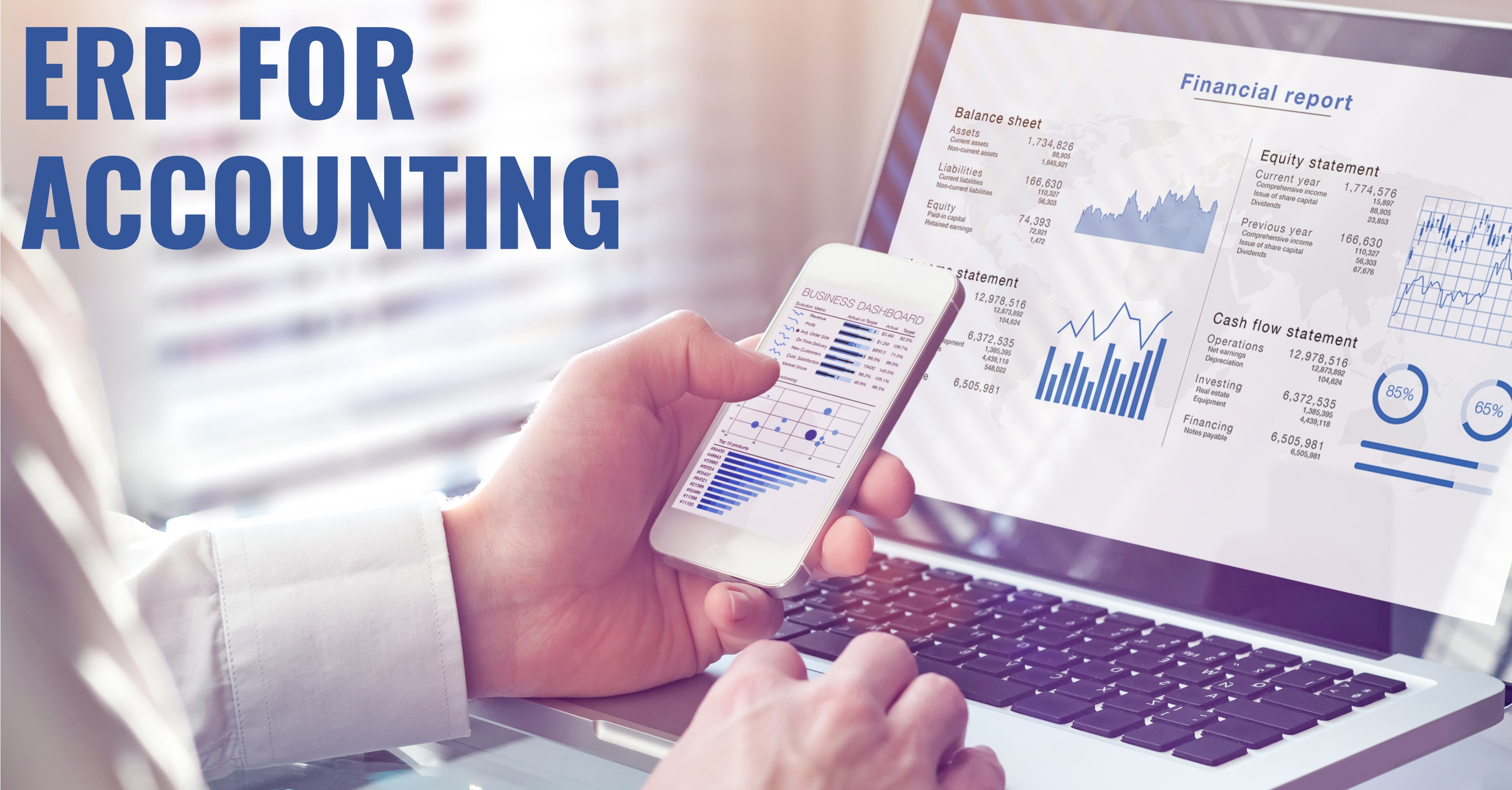ERP Software for Accounting
In a study of ERP buying trends, 89% of respondents reported that the most critical function is accounting, far and away outranking other software capabilities. This shouldn’t come as a surprise, not only because of the core role of financials in any business but also because of the limitations of many accounting systems. QuickBooks and other financial applications can’t keep up with growing accounts or complex operations. Spreadsheets are even worse, requiring accountants to maintain extensive paper trails and perform time-consuming manual tasks.
ERP beats out traditional platforms and methods because it allows businesses to take a holistic approach to running their operations and tracking their fiscal performance. The software harbors a wide range of back-end data in a single solution while also offering top-of-the-line financial management features. There’s simply no reason to stick to QuickBooks and spreadsheets. Learn why ERP is essential for accounting.
Visibility
When you’re allocating costs, tracking payments, defining budgets and creating fiscal reports for your entire organization, you need a wide assortment of data from across several departments. If your team depends on accounting software or spreadsheets, then it is forced to go on a tedious hunt for data spread throughout several applications and documents. With ERP, enterprise data is in one place. That means customer-specific price breaks are instantly available for precise invoicing. Accountants can analyze overhead, labor and inventory costs from a single system to determine how much it costs to manufacture a product. In short, ERP software enhances visibility to streamline financial management.
Leading ERP vendors also designed their accounting tools to provide quick and in-depth insights. Accountants can gather up-to-date fiscal data from multiple departments to generate accurate reports. User-friendly dashboards allow employees to easily drill-down into real-time data. Advanced tracking capabilities in accounts receivable (AR) and accounts payable (AP) features ensure that users always know who is paying their bills on time and how much your company owes. Epicor’s general ledger (GL) provides complete control over financial reports and enables users to establish unlimited books and access the details of each account. All these features grant accountants full visibility—without getting dizzy looking through pages of spreadsheets.
Accuracy
Paper-based bookkeeping doesn’t cut it today. Hand-written entries take way too much time and are prone to errors. Though spreadsheets are a step up, using Excel for financial reports also involves time-consuming manual entries that could result in costly mistakes. Plus, poor spreadsheet coding or malfunctions could throw off your reports and cause critical damage.
ERP software automates financial processes to increase both accuracy and efficiency. Rather than rely on manual entries, you can populate reports with precise data from within your ERP system. Data moves seamlessly across the organization without information silos or duplicate entries, facilitating accurate bookkeeping. Your GL can automate allocations of funds across multiple accounts. You can also automatically create and post GL entries from AP and AR transactions. Additionally, Epicor’s DocStar AP Automation solution captures text from scanned or photographed invoices and instantly locates matches in your ERP system. With automated financial management, you gain reliable data to generate accurate reports, forecasts and strategies.
Compliance
Strict regulations and standards weigh heavily on accountants. Most accounting applications don’t support critical standards, such as Generally Accepted Accounting Principles (GAAP). In contrast, ERP solutions are often GAAP compliant and offer full audit transparency. Users can access historical data and track all records that have been entered or deleted.
Epicor goes a step above most ERP offerings by including Country Specific Functionality (CSF), which supports global, regional and local accounting standards, such as IFRS, GAAP and taxes. Additionally, Epicor’s global engines streamline compliance for international financial and legal requirements. The configurable tax engine helps businesses meet tax requirements around the world, and the legal numbering engine manages legal numbering of printed transactions. As businesses become increasingly challenged by complex fiscal and regulatory burdens, a sophisticated ERP solution is essential for maintaining accounting standards.
Wrap Up
It’s no wonder the ERP market is taking over accounting software. ERP is a must for fully managing fiscal processes and supporting sustainable business growth. Epicor’s robust financial management module gives accountants a comprehensive view of your business, so you can make strategic decisions and stay compliant.
An Epicor Gold Partner, Datix has provided premier ERP solutions to manufacturers and distributors for over 20 years. Our certified consultants work closely with each client to ensure they have the tools they need to improve their financial performance. From start to finish, we’ll help you capitalize on the full value of your ERP software.
From your accounting offices to your shop floor, Epicor ERP has the power to transform your business. Learn more by contacting one of our ERP experts today!
{{cta(‘770c1544-d87d-4acb-9fc4-7a25e1385094′,’justifycenter’)}}


